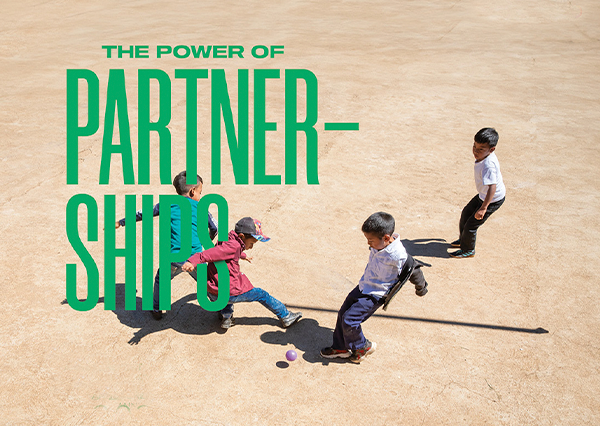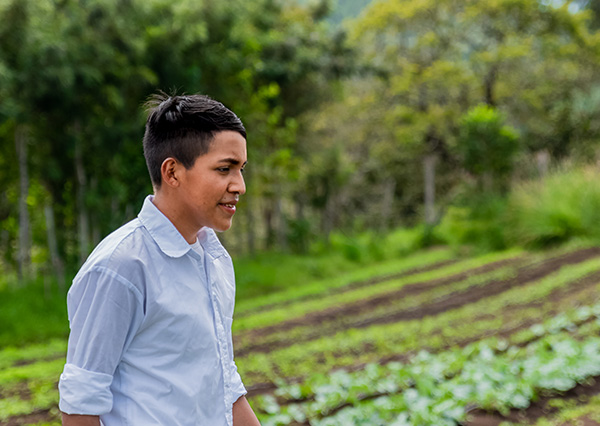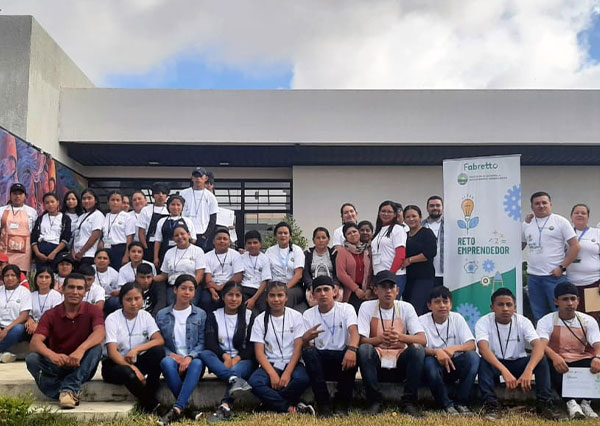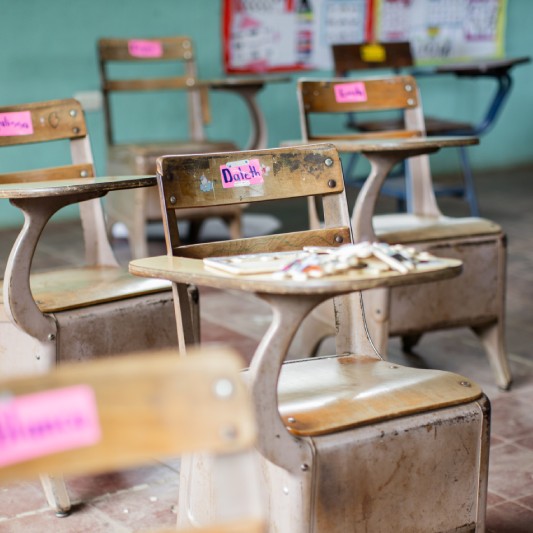10-16-13 | Our Programs
Today, Fabretto joins organizations around the world to celebrate World Food Day! To learn more about World Food Day, visit the official website, where Fabretto was featured in the Perspective series.
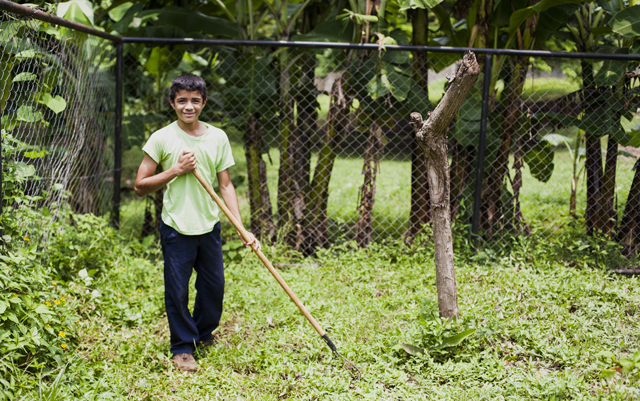
It’s a typical day in the Fabretto school garden. In the morning, the fourth grade teacher takes his class to the garden to water the squash plants and discuss their science lesson on the water cycle. On the other side of the hill, older students work independently tending the corn crops after their teacher collects their homework as part of the sustainable agriculture unit. Mothers catch a glimpse of their children at work through the school kitchen window; they arrived around ten to begin preparing freshly harvested plantains for school lunch. As the sun hits high noon, the school community gathers in the cafeteria to share a nourishing meal with foods that they grew themselves.
What you don’t see here is the landscape outside the school walls: the reality of life in an underprivileged community in Nicaragua, a country with 46% of the population living below the poverty line and 20% suffering from malnourishment. 22% of Nicaraguan children experience irreversible growth stunting due to inadequate nutrition in early childhood (UNICEF).
School gardens are one crucial way that Fabretto pursues its mission to empower children and families, in conjunction with other education, nutrition, and community development programs. Currently, Fabretto is working with the non-profit Food for the Poor on a USDA-funded food security initiative that will benefit 70,000 children and adolescents. Fabretto has built 248 gardens in Nicaraguan schools, providing each school community with training, seeds, and tools, as well as consistent follow up and technical support.
School gardens are simple yet powerful tools for sustainable development. Fabretto gardens produce fruits and vegetables (such as onions, corn, avocadoes, mangoes, and radishes), all of which go directly back to the children’s lunches, often their only full meal of the day. The nutritious lunch gives back in other ways, too, by boosting attendance and giving children the energy they need to focus on learning.
School gardens stimulate long term improvements by building community nutritional knowledge. Fabretto involves parents in every program: cooking daily school meals, planting and tending school gardens alongside their children, and participating in health and nutrition workshops. In addition, rural families in Fabretto’s programs have established 76 extended home gardens; the sale of produce benefits both the family economy and community health.
Looking to the future, Fabretto builds future community leaders by teaching students about sustainable agriculture and the environment through hands-on lessons in the gardens. Older students in the rural education program receive a plot of land per class, where they learn key technical skills and engage in entrepreneurship by selling their products.
By continuing to build and strengthen school gardens, Fabretto shares the joy of a better future for children and families in Nicaragua. You can help us build more school gardens by donating to support Food Security & Nutrition programs today!


